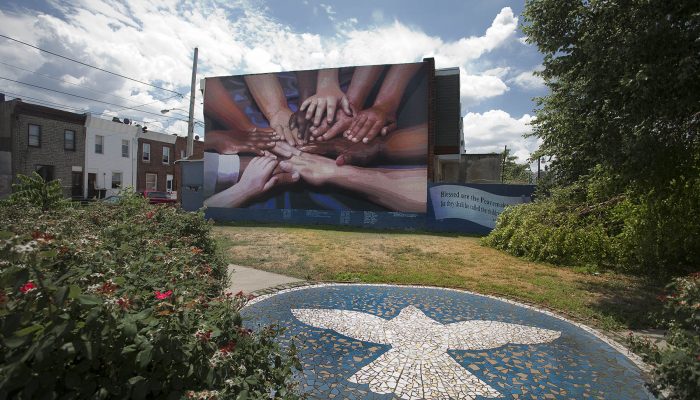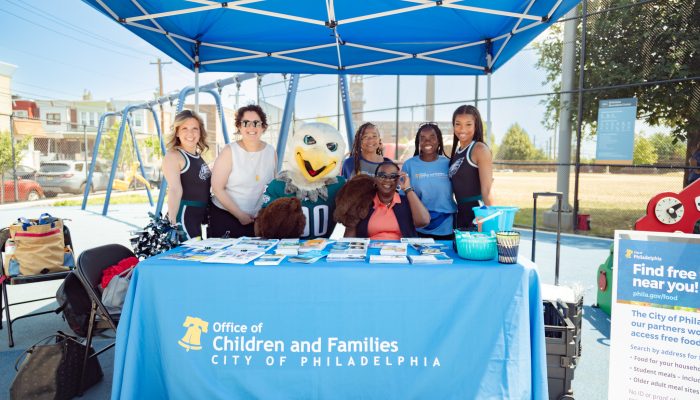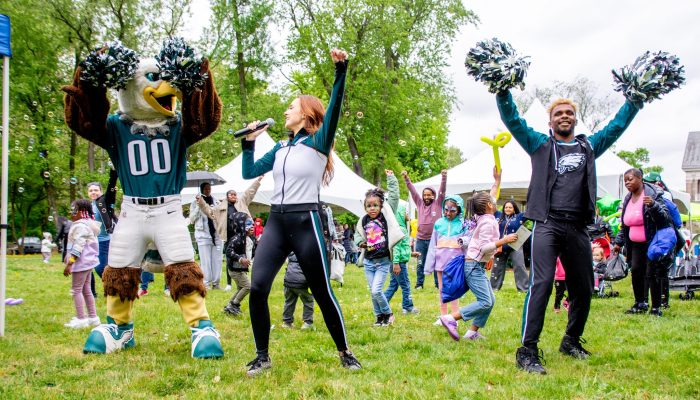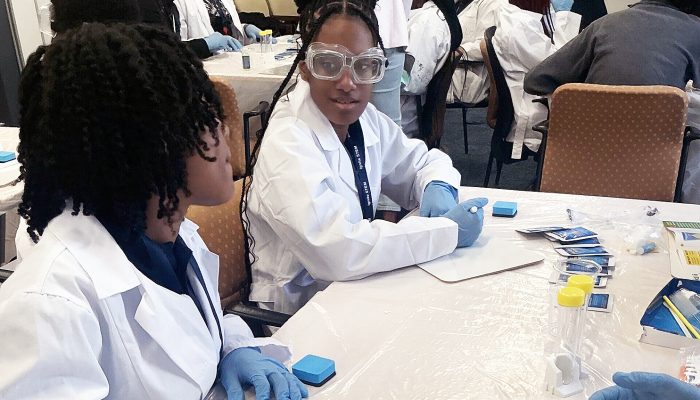Across the United States, February is Teen Dating Violence Awareness Month. Teen dating violence is a national problem that affects many young adults across the country: It’s estimated that one in three adolescents will experience some form of dating violence.
Here in Philadelphia, a 2015 survey among students who dated within the past 12 months found that 15 percent of heterosexual youth experienced either sexual or physical dating violence. For LGBT identified youth, the figures are even higher. Despite these numbers, 81 percent of American parents say they don’t know about teen dating violence or that it isn’t a problem at all.
This information will help you learn about:
- Talking about healthy relationships.
- Supporting individuals affected.
- Identifying the warning signs of abuse.
- How to get help.
Talking about healthy relationships
Adults should talk to youth about what makes up a healthy relationship. If youth can identify healthy relationships, we can prevent dating violence before it begins.
Knowing where to start, or how to talk to youth about identifying healthy relationship characteristics can be a challenge. For ideas on how to start that conversation or what to include during that talk you can visit Break The Cycle and Love Is Respect.
Supporting individuals affected
If you are concerned about someone you know, starting a conversation can be difficult. It’s important to know that while you may have identified signs of concern the person in the relationship may not see the behavior as abusive. These tips can help guide your conversation.
- Relay your concerns. Let them know what behavior you’ve noticed that concerns you and ask them how that behavior makes them feel. Focus on listening to how the relationship works, or doesn’t work, for them.
- Be supportive. It can be difficult for a person to identify abuse or they may not want to leave the relationship. Try to keep an open mind and not judge them. Ask them how you can help and listen to what they say. Let them know you are there to support them. If they don’t want to talk at that time, let them know you’re available when they are ready.
- Get help when needed. If you think a person is in immediate danger or has been threatened, don’t be afraid to get emergency help involved. If there isn’t an immediate danger you can always get a trusted adult, counselor, or advocate involved to help you. Remember to keep yourself safe first, so that you can help others.
If someone discloses their concerns or tells you about violence in their relationship, knowing what to do can be difficult. They have identified you as someone they trust, and being supportive can make all the difference. Here are some guidelines to help.
- Listen first and take it seriously. Brushing off someone’s disclosure could send the message that what they’re experiencing is not that bad and make them reluctant to reach out in the future.
- Thank them for disclosing. Only 33 percent of teens in violent relationships has ever told someone about the abuse. Let them know you appreciate them telling you and you want to support them.
- Prioritize their needs. Let them know that they are not responsible for the violence and ask them how they would like you to help.
- Get help when needed. If you think a person is in immediate danger or has been threatened, don’t be afraid to get emergency help involved. If there isn’t an immediate danger you can always get a trusted adult, counselor, or advocate involved to help you. Let them know there are resources available that you can connect them to. They can always contact either the Philadelphia Domestic Violence Hotline at 1-866-723-3014 or the National Teen Dating Violence Hotline at 1-866-331-9474.
Warning signs of abuse
It can be difficult to determine the difference between healthy, unhealthy and abusive relationships. Since no two relationships are the same what is just annoying behavior in one relationship could be abusive in another. These are some common warning signs of dating abuse:
- Extreme jealousy or insecurity.
- Isolation from family and friends.
- Checking cell phones, social media, and emails without permission.
- Physically inflicting pain or hurt.
- Constant monitoring of location.
- Continual unwanted messaging.
- Repeatedly pressuring someone in unwanted acts.
- Making threats or carrying out threats to hurt the other person.
- Destroying personal property or things of sentimental value.
Getting Help
If you or someone you know is experiencing dating violence, there is help available. Everyone deserves to feel safe in their relationship, regardless of their age.
- Philadelphia Domestic Violence Hotline, 1-866-723-3014.
- Lutheran Settlement House’s Bilingual Domestic Violence Program, 215-426-8610 x 1236.
- Congreso de Latinos Unidos’ Latina Domestic Violence Program, 215-763-8870 x 1353.
There are also resources available both online and on the phone.
- Loveisrespect provides support and information for youth and concerned loved ones. Their services are free, confidential, and available 24 hours a day, 7 days a week, 365 days per year. They are available online,via text by texting “Loveis” to 22522 (standard messaging rates may apply), or on the phone at 1-866-331-9474.
- Break the Cycle offers online information for both youth and adults about dating violence and healthy relationships.
- That’s Not Cool helps to educate youth on dating abuse and, specifically, digital abuse. They provide tools for youth to learn about healthy relationships and empower them to go into their own communities to educate others. For adults who want to work with youth on these issues, they offer resources and tips on engaging youth.




